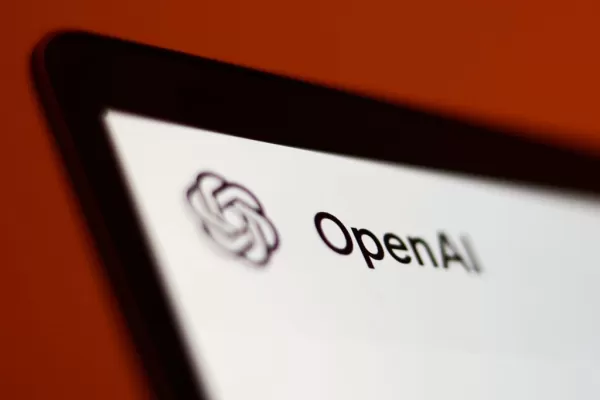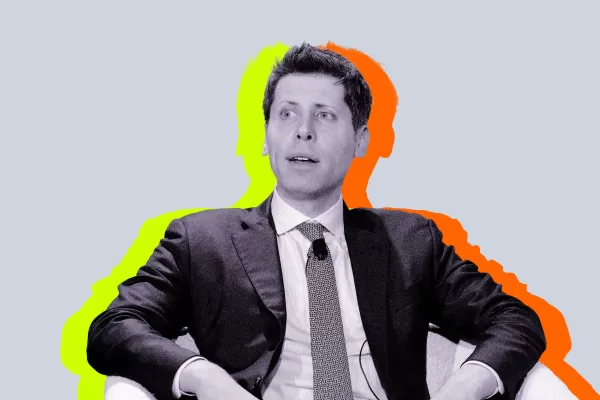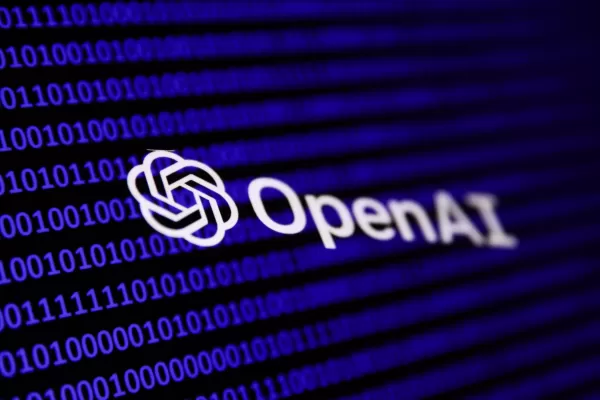OpenAI Enhances AI Model Behind Its Operator Agent

OpenAI Takes Operator to the Next Level
OpenAI is giving its autonomous AI agent, Operator, a major upgrade. The upcoming changes mean Operator will soon rely on a model based on o3, one of the newest entries in OpenAI’s cutting-edge o series of reasoning models. Up until now, Operator had been powered by a customized version of GPT-4o. But make no mistake—this new iteration is set to bring significant improvements.
Why o3 Matters
By almost every measure, o3 stands head and shoulders above its predecessor when it comes to tasks involving math and logical reasoning. OpenAI itself acknowledges the leap forward: “We are replacing the existing GPT-4o-based model for Operator with a version based on OpenAI o3,” they stated in a recent blog post. However, they added that the API version of Operator will still remain rooted in GPT-4o for now.
A New Era of Autonomous Tools
Operator isn’t alone in the race toward creating ultra-sophisticated autonomous agents. Google has thrown its hat into the ring with a “computer use” agent via its Gemini API, capable of browsing the web and handling user tasks. They’ve also introduced Mariner, a more consumer-oriented tool. Meanwhile, Anthropic has developed models that can handle tasks like file management and web navigation. Clearly, this space is heating up fast.
Security and Safety
One of the standout features of the new o3-powered Operator is its enhanced safety protocols. OpenAI has fine-tuned the model specifically for computer-related tasks, incorporating additional safety data and datasets designed to teach the model appropriate boundaries regarding confirmations and refusals. A technical report published by OpenAI highlights how o3 Operator performs better in specific safety evaluations compared to its predecessor. For instance, it’s less likely to refuse illicit activities or search for sensitive personal data and is more resilient against prompt injection attacks—a common cybersecurity concern in AI systems.
What o3 Brings to the Table
Despite these advancements, OpenAI reassures users that o3 Operator retains the same robust safety measures as the previous version. Interestingly, while o3 Operator leverages the coding prowess of the o3 model, it doesn’t have direct access to a coding environment or terminal. This ensures a balance between functionality and safety, allowing users to benefit from improved performance without introducing unnecessary risks.
Stay Ahead of the Curve
For those eager to explore the future of AI-driven autonomy, keep an eye on OpenAI’s updates. Whether you’re a tech enthusiast or a business looking to integrate advanced tools into your operations, the evolution of Operator represents a pivotal moment in AI development. Who knows where this technology will lead next?
Upcoming Events: Dive Deeper into AI
- TechCrunch Sessions: AI: Join us in Berkeley, CA, on June 5 for a day packed with expert talks, workshops, and networking opportunities. Secure your spot today!
- Exhibit at TechCrunch Sessions: AI: Showcase your innovations to over 1,200 decision-makers. Limited spots available until May 9.
Related article
 Sam Altman: ChatGPT Query Uses Minimal Water - Equivalent to 1/15 Teaspoon
In a Tuesday blog post exploring AI's global impact, OpenAI CEO Sam Altman revealed surprising statistics about ChatGPT's resource consumption, noting the average query uses approximately 0.000085 gallons of water - equivalent to roughly one-fifteent
Sam Altman: ChatGPT Query Uses Minimal Water - Equivalent to 1/15 Teaspoon
In a Tuesday blog post exploring AI's global impact, OpenAI CEO Sam Altman revealed surprising statistics about ChatGPT's resource consumption, noting the average query uses approximately 0.000085 gallons of water - equivalent to roughly one-fifteent
 US Senate Drops AI Moratorium from Budget Bill Amid Controversy
Senate Overwhelmingly Repeals AI Regulation Moratorium
In a rare show of bipartisan unity, U.S. lawmakers voted nearly unanimously Tuesday to eliminate a contentious decade-long prohibition on state-level AI regulation from landmark legislation orig
US Senate Drops AI Moratorium from Budget Bill Amid Controversy
Senate Overwhelmingly Repeals AI Regulation Moratorium
In a rare show of bipartisan unity, U.S. lawmakers voted nearly unanimously Tuesday to eliminate a contentious decade-long prohibition on state-level AI regulation from landmark legislation orig
 OpenAI Unveils Two Advanced Open-Weight AI Models
OpenAI revealed on Tuesday the release of two open-weight AI reasoning models, boasting capabilities comparable to its o-series. Both models are available for free download on Hugging Face, with OpenA
Comments (5)
0/200
OpenAI Unveils Two Advanced Open-Weight AI Models
OpenAI revealed on Tuesday the release of two open-weight AI reasoning models, boasting capabilities comparable to its o-series. Both models are available for free download on Hugging Face, with OpenA
Comments (5)
0/200
![ScottJackson]() ScottJackson
ScottJackson
 August 19, 2025 at 5:01:19 AM EDT
August 19, 2025 at 5:01:19 AM EDT
This upgrade sounds wild! Operator running on o3 is gonna be a game-changer for AI agents. Can't wait to see how it handles complex tasks now! 😎


 0
0
![FrankWilliams]() FrankWilliams
FrankWilliams
 August 14, 2025 at 9:00:59 AM EDT
August 14, 2025 at 9:00:59 AM EDT
Super cool to see OpenAI leveling up Operator with the o3 model! 🚀 Curious how it'll stack up against other AI agents now.


 0
0
![JuanAllen]() JuanAllen
JuanAllen
 August 11, 2025 at 6:01:03 PM EDT
August 11, 2025 at 6:01:03 PM EDT
Wow, OpenAI's Operator is getting a serious glow-up with the o3 model! 🚀 I'm curious how much smarter it'll get—can it finally outwit my tricky coding bugs?


 0
0
![RalphThomas]() RalphThomas
RalphThomas
 August 7, 2025 at 9:00:59 AM EDT
August 7, 2025 at 9:00:59 AM EDT
Wow, OpenAI's Operator getting a boost with the o3 model sounds like a game-changer! Can't wait to see how much smarter it gets. 😎 Anyone else wondering if this will outshine other AI agents?


 0
0
![JerryLopez]() JerryLopez
JerryLopez
 July 27, 2025 at 9:20:02 PM EDT
July 27, 2025 at 9:20:02 PM EDT
哇,OpenAI又在搞大动作!Operator升级到o3模型,感觉AI的推理能力要飞起来了🚀,以后会不会连我的工作都能抢了?有点期待又有点慌!


 0
0

OpenAI Takes Operator to the Next Level
OpenAI is giving its autonomous AI agent, Operator, a major upgrade. The upcoming changes mean Operator will soon rely on a model based on o3, one of the newest entries in OpenAI’s cutting-edge o series of reasoning models. Up until now, Operator had been powered by a customized version of GPT-4o. But make no mistake—this new iteration is set to bring significant improvements.
Why o3 Matters
By almost every measure, o3 stands head and shoulders above its predecessor when it comes to tasks involving math and logical reasoning. OpenAI itself acknowledges the leap forward: “We are replacing the existing GPT-4o-based model for Operator with a version based on OpenAI o3,” they stated in a recent blog post. However, they added that the API version of Operator will still remain rooted in GPT-4o for now.
A New Era of Autonomous Tools
Operator isn’t alone in the race toward creating ultra-sophisticated autonomous agents. Google has thrown its hat into the ring with a “computer use” agent via its Gemini API, capable of browsing the web and handling user tasks. They’ve also introduced Mariner, a more consumer-oriented tool. Meanwhile, Anthropic has developed models that can handle tasks like file management and web navigation. Clearly, this space is heating up fast.
Security and Safety
One of the standout features of the new o3-powered Operator is its enhanced safety protocols. OpenAI has fine-tuned the model specifically for computer-related tasks, incorporating additional safety data and datasets designed to teach the model appropriate boundaries regarding confirmations and refusals. A technical report published by OpenAI highlights how o3 Operator performs better in specific safety evaluations compared to its predecessor. For instance, it’s less likely to refuse illicit activities or search for sensitive personal data and is more resilient against prompt injection attacks—a common cybersecurity concern in AI systems.
What o3 Brings to the Table
Despite these advancements, OpenAI reassures users that o3 Operator retains the same robust safety measures as the previous version. Interestingly, while o3 Operator leverages the coding prowess of the o3 model, it doesn’t have direct access to a coding environment or terminal. This ensures a balance between functionality and safety, allowing users to benefit from improved performance without introducing unnecessary risks.
Stay Ahead of the Curve
For those eager to explore the future of AI-driven autonomy, keep an eye on OpenAI’s updates. Whether you’re a tech enthusiast or a business looking to integrate advanced tools into your operations, the evolution of Operator represents a pivotal moment in AI development. Who knows where this technology will lead next?
Upcoming Events: Dive Deeper into AI
- TechCrunch Sessions: AI: Join us in Berkeley, CA, on June 5 for a day packed with expert talks, workshops, and networking opportunities. Secure your spot today!
- Exhibit at TechCrunch Sessions: AI: Showcase your innovations to over 1,200 decision-makers. Limited spots available until May 9.
 Sam Altman: ChatGPT Query Uses Minimal Water - Equivalent to 1/15 Teaspoon
In a Tuesday blog post exploring AI's global impact, OpenAI CEO Sam Altman revealed surprising statistics about ChatGPT's resource consumption, noting the average query uses approximately 0.000085 gallons of water - equivalent to roughly one-fifteent
Sam Altman: ChatGPT Query Uses Minimal Water - Equivalent to 1/15 Teaspoon
In a Tuesday blog post exploring AI's global impact, OpenAI CEO Sam Altman revealed surprising statistics about ChatGPT's resource consumption, noting the average query uses approximately 0.000085 gallons of water - equivalent to roughly one-fifteent
 US Senate Drops AI Moratorium from Budget Bill Amid Controversy
Senate Overwhelmingly Repeals AI Regulation Moratorium
In a rare show of bipartisan unity, U.S. lawmakers voted nearly unanimously Tuesday to eliminate a contentious decade-long prohibition on state-level AI regulation from landmark legislation orig
US Senate Drops AI Moratorium from Budget Bill Amid Controversy
Senate Overwhelmingly Repeals AI Regulation Moratorium
In a rare show of bipartisan unity, U.S. lawmakers voted nearly unanimously Tuesday to eliminate a contentious decade-long prohibition on state-level AI regulation from landmark legislation orig
 OpenAI Unveils Two Advanced Open-Weight AI Models
OpenAI revealed on Tuesday the release of two open-weight AI reasoning models, boasting capabilities comparable to its o-series. Both models are available for free download on Hugging Face, with OpenA
OpenAI Unveils Two Advanced Open-Weight AI Models
OpenAI revealed on Tuesday the release of two open-weight AI reasoning models, boasting capabilities comparable to its o-series. Both models are available for free download on Hugging Face, with OpenA
 August 19, 2025 at 5:01:19 AM EDT
August 19, 2025 at 5:01:19 AM EDT
This upgrade sounds wild! Operator running on o3 is gonna be a game-changer for AI agents. Can't wait to see how it handles complex tasks now! 😎


 0
0
 August 14, 2025 at 9:00:59 AM EDT
August 14, 2025 at 9:00:59 AM EDT
Super cool to see OpenAI leveling up Operator with the o3 model! 🚀 Curious how it'll stack up against other AI agents now.


 0
0
 August 11, 2025 at 6:01:03 PM EDT
August 11, 2025 at 6:01:03 PM EDT
Wow, OpenAI's Operator is getting a serious glow-up with the o3 model! 🚀 I'm curious how much smarter it'll get—can it finally outwit my tricky coding bugs?


 0
0
 August 7, 2025 at 9:00:59 AM EDT
August 7, 2025 at 9:00:59 AM EDT
Wow, OpenAI's Operator getting a boost with the o3 model sounds like a game-changer! Can't wait to see how much smarter it gets. 😎 Anyone else wondering if this will outshine other AI agents?


 0
0
 July 27, 2025 at 9:20:02 PM EDT
July 27, 2025 at 9:20:02 PM EDT
哇,OpenAI又在搞大动作!Operator升级到o3模型,感觉AI的推理能力要飞起来了🚀,以后会不会连我的工作都能抢了?有点期待又有点慌!


 0
0





























